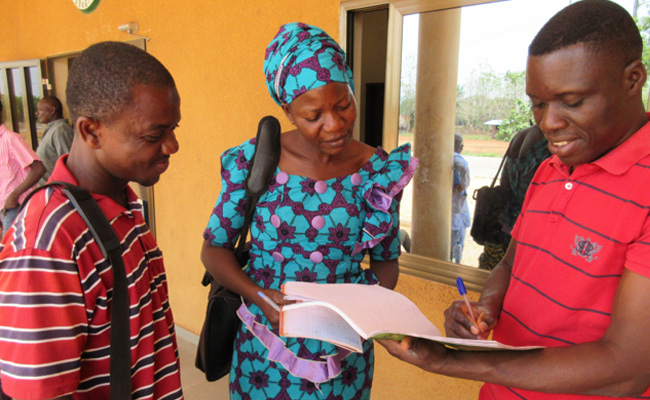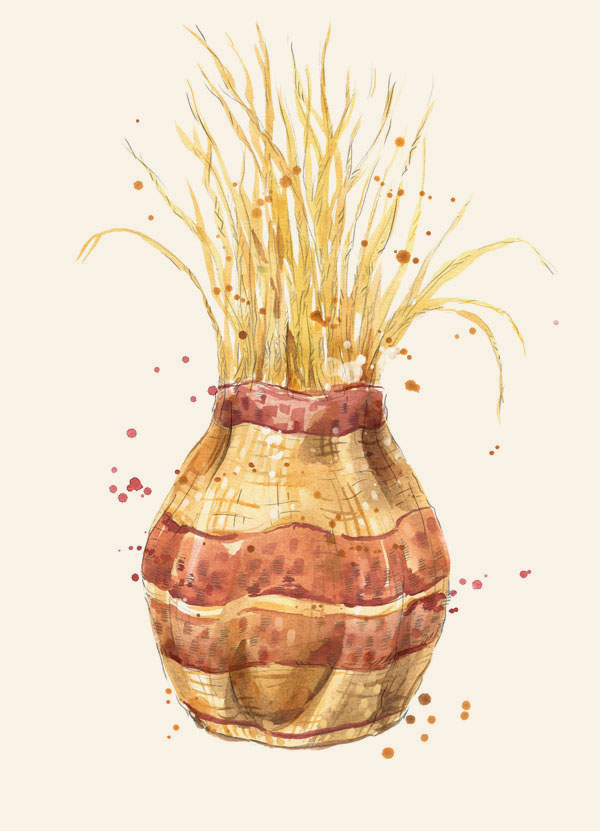
Project Objective: To improve the effectiveness of policy brief writing, ensuring that top national public health threats would be addressed by policy makers, ultimately reducing the morbidity and mortality experienced by Ghanaians. Ms. Hentz represented IQ Solutions for this project.
Audience: Attendees at policy brief writing courses, offered to public health officials in the Ghana Ministry of Health, was a goal of the Data to Policy Initiative, part of the broader Data to Health Initiative funded by Bloomberg, Johns Hopkins University, and the CDC Foundation.
Actions: Involved daily attendance and observation at Ministries of Health policy brief writing courses, assessments were made based on specific outcome-based criteria. Considerations of cultural competency in the training program, i.e. adhering to norms of this sector of Ghanaian society, by the instructors were studied and were a singular factor in shaping success.
Qualitative research was gathered, from crafted interviews to focus group sessions with the instructor group and separately, the student group. Gathering cultural perspectives and norms around learning methods and identifying channels for best success in governmental interactions were emphasized. Not only the improvement of the training process itself but an understanding of how to manage governmental interactions from a cultural standpoint were keys to success.
Impact: A “train-the-trainer” curriculum was developed by IQ Solutions and implemented based on the findings of this assessment exercise, shaped by clear messages from the research. Cultural approaches to learning and the introduction of digital learning methods were added. The Data to Policy initiative advanced on to 17 other countries and cities. Cultural approaches to learning were a significant adaptable component of the approach in each region. Community partnerships were identified to realize the sustainable success of the policy courses.
Services: Program Evaluation, Research/Qualitative, Cultural Competency

Project Objective: To identify and remove barriers in the establishment of community gardens by public sector decision-makers. Further, to encourage funding for Urban Garden Initiatives by providing sufficient data about the significant benefits to personal and community health when access to neighborhood gardens is available.
Audience: Urban policy makers (Atlanta), decision-makers around a cost-benefit analysis in support of an expansion of community/urban gardening.
Actions: Interview with the CEO of the Metro Atlanta Urban Farm in College Park (and previous program director for The University of Georgia Cooperative Extension/Atlanta Urban Gardening Program (AUGP). Provided valuable insight on the benefits of a community urban garden to promote both physical and mental well-being, to reduce crime, and promote job security. A wealth of feedback was provided about the challenges and successes of urban gardens for a given community.
Interview with Roswell City Park Director of Community Gardens about the high demand for community plots, feedback about the value of location, accessibility, and garden management and sustainability. Additional interviews were held with urban garden users, testifying to the numerous benefits to community gardens, speaking in favor of expansion of these programs.
Impact: Strong data gathered from community organizers and participants about the physical and psychological benefits realized from urban gardens. Policy makers weigh the data against the cost of comparative use of city plots. Decisions based on cost-benefit analysis for increasingly scarce urban green space.
Service: Research, Qualitative and Quantitative

Project Objective: To understand why elders in the Diné tribe, residing in San Juan and McKinley Counties of New Mexico, were suffering a mortality rate of more than twice the national average from flu and pneumonia. To understand cultural values and respectful interaction, lifestyles, knowledge, beliefs, valued voices, and behaviors of the Diné elders (over 65) and those who love them and interact with them, all to construct a social marketing behavior change program framework aimed to reduce mortality and prove sustainable. Additionally, to identify community partners to promote understanding and access within the community. This project was a collaboration with the New Mexico Department of Health in Santa Fe and Albuquerque.

Audience: Diné tribal elders within San Juan and McKinley Counties, NM, Indian Health Service staff, home visiting staff.
Actions: Qualitative research was completed through a variety of cross-sectional interviews with community members and Indian Health Service home visiting health professionals.
Research revealed an understanding of rural life and challenges, of cultural norms and behaviors. It identified gaps in flu/pneumonia vaccination rates by age, of general daily activities of community members, of the most valued voices within the family and community, and of effective channels of communication and geographic/commercial access points.
Impact: Research outcomes and community engagement built the foundation for a behavior change framework aimed to reduce the morbidity and mortality within this sector. The research and data revealed behaviors and geographic factors that were contributing to the high rates of mortality, and further informed the most effective channels for messaging and the defined locations to facilitate access to vaccines for the middle-aged residents who were interacting frequently with the elders.
Services: Research- Qualitative and Quantitative, Cultural Competency, Social Marketing Framework Design






 Social Change Projects
Social Change Projects 






